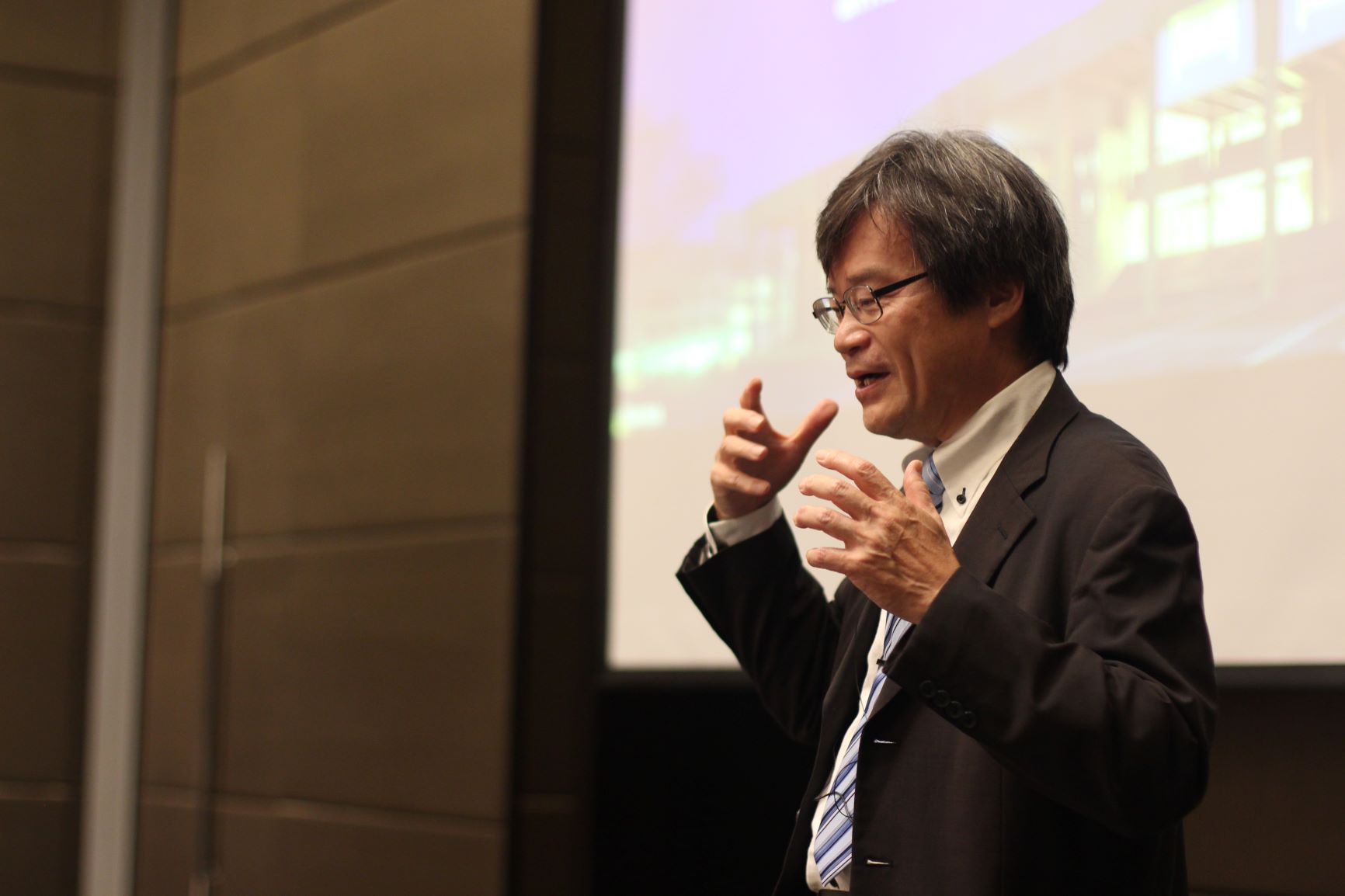
- ARAB NEWS
- 16 Jul 2025

Staff Writer
People all over the world recognize that science in the Arab world during the medieval age formed the fundamentals for scientific development up to the present time, according to Japanese Nobel Laureate Prof. Hiroshi Amano.
“In that sense, I respect Arab people as the pioneers of modern science,” said Prof. Amano, responding to Arab News questions on the eve of his public talk at the German University of Technology (GUtech) in Muscat, Oman, recently.
The lecture delivered by the 2014 Nobel Prize winner in Physics was titled “Towards a Zero-Emission Society.”
“I think one of the reasons why Arab people in the medieval age were so strong in science was the active exchange of goods and people beyond their country borders,” Prof. Amano said.
“Likewise, it is very important to develop good relationships not only among domestic researchers but also the researchers on the world stage,” he said.
“I would like to gift a phrase to the young Arab researchers, ‘Necessity is the mother of invention. Have a dream and try to realize it,’” he said.
In 2014, Prof. Amano was awarded the Nobel Prize jointly with his colleagues Prof. Dr. Isamu Akasaki and Prof. Dr. Shuji Nakamura.
The three scientists received the award for their invention of efficient blue light-emitting diodes LED lights, which have enabled energy-saving white light sources.
Life after the Nobel Prize
Prof. Amano does not consider his journey before winning the Nobel Prize to be any different from what he has been pursuing since.
“Fundamentally, there is no difference in my goal as a researcher before and after receiving the Nobel Prize in 2014. My research goal is to contribute to the wealth and welfare of mankind,” he said.
However, he is willing to concede something that may have changed. “My influence on the society seems to be stronger. Many able researchers are willing to join our group after I became a Nobel laureate,” he said.
The Nobel laureate considers it equally important to encourage other researchers to attain goals collectively.
But how has his study helped the cause of sustainable energy, and the environment in general? Prof. Amano explained the study of GaN, one of the semiconductors used for blue light-emitting diodes, thus making high-frequency transistors.
“The reason why blue LEDs are so important is that only blue LED can produce white LED and LED lighting contributes to saving electricity by about 7 percent in Japan by way of replacing conventional light bulbs,” he said.
GaN base power transistors can also save energy by about 10 percent by replacing conventional Si-based transistors, he said.
Prof. Amano has a doctorate in engineering and is director of the Center for Integrated Research of Future Electronics (URFE) at the Nagoya-based Institute of Materials and Systems for Sustainability (IMaSS).
He is also the director of the Akasaki Research Center at Nagoya University (Japan).
‘Internet of Energy’
Prof. Amano believes that wireless power transmission will become common in electricity grids in the future.
“This wireless power transmission is essential to establish a renewable energy-based system. We call such a system the “Internet of Energy,” in which we can receive electric power anytime and anywhere,” he said.
Asked about the reasons behind the cutting-edge nature of scientific research in Japan, Prof. Amano said that Japanese people tended to be less positive about its current state in their country.
“They are worried about the decline of scientific performance at the domestic level. So far, the development of science in Japan has been made possible thanks to the large population, stable politics and a prosperous economy,” he said.
A good education system, especially in primary and secondary schools, has contributed to keeping good levels in scientific fields even though higher education in Japan continues to face problems, he said.
Zero-emission society
During his lecture at GUtech, the Nobel winner called for an energy shift from oil-based economies towards renewable energies such as solar energy, reducing CO2 emissions by 80 percent. He said that this could prevent a further increase in temperatures worldwide.
Prof. Amano and his research team are currently working on a long-term, interdisciplinary project to find innovative approaches toward developing a zero-emission society and together have invented “movable offshore solar power stations.”
The “Future Wireless Power Transmission Network” is an open innovation platform that develops sustainable, smart solutions for future energy challenges of societies based on an Eco Research System.
For example, by using LED light Japan has reduced its annual electricity consumption by 7 percent. Prof. Amano was accompanied by a delegation from Nagoya University (Japan) and the former Japanese ambassador to the Sultanate of Oman, Seiji Morimoto.